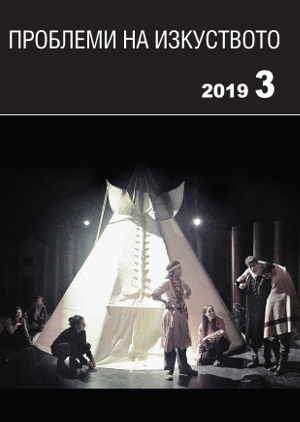Телевизия THE END. Ще сложат ли социалните мрежи/медии край на телевизията
Would social networks/media put an end to television?
Author(s): Yana Djarova–KarakolevaSubject(s): Fine Arts / Performing Arts, Film / Cinema / Cinematography
Published by: Институт за изследване на изкуствата, Българска академия на науките
Summary/Abstract: Now, in the age of the Internet and satellite TV channels, when people spend more time cell phone in hand than watching TV, a question arises more frequently as to whether polythematic TV is left to wither and die. It should be appropriate to come up with assumptions that would draw our attention to one direction or other without being categorical in our speculations. It is a fact that with the invention of each new communication medium the society is shocked and anxious about whether the new one would not eliminate the previous. It is normal to be sceptical about any new media and perceive it through the prism of the old, but the time shows that none of the new media of mass communication obliterated the older ones. At the outset of television communication was of a one-way nature, but now, with interactivity and feedback communication in place, it is not the case any more. In the post-information age, we witnessed the emergence of the web TV, which is a result of bringing together two technologies (computer and TV), using the same screen instead of two. Is then television self-destroying itself by giving in to the tempting technological progress? Viewers themselves gradually become screens where the TV programmes unfolds. We are witnessing communication that is decreasingly mass and increasingly individual. Media messages, getting segmented and individualised, are conveyed to audiences that are not a passive object, but an interactive subject. Definitely sensing the mighty power of the effect of social networks/media, television, struggling to survive, begins to ‘live’ and directly interact with the social media. The article deals also with the transition of ‘TV viewers’ to ‘ television readers’ and ‘socialised consumers’ and the increasingly used video streaming that would help television not only keep their audiences, but also reach wider audiences. If the ‘Gutenbergian civilization’ and the ‘civilization of images’ were of one-way communication, rather than of interaction, the ‘digital civilization’ is not at all the apex of the development of mass communication media, but rather just a new chapter of the unceasing spiral of the development and technological refinement of the media. The interaction between television and viewers has changed over time, but audiences also changed with the coming of digitalisation. With the options of individual choice, programmes divide viewers rather than connect them. The result was a strict profiling and segmentation of TV audiences. Social networks shall not put an end to television. People will go on watching TV in one form or other, on any screen. Now television accompanies viewers: on a bus, in a park, etc. Consumption of online and mobile contents will exceed that of television. Future belongs to reality TV as viewers identify themselves with the participants in the show. This type of television relies on primary reactions, voyeuristic desire, on the banal, scandalous and challenging. Gradually, the end of the ‘one-way’ television is coming to be replaced with personalised media.
Journal: Проблеми на изкуството
- Issue Year: 2019
- Issue No: 3
- Page Range: 47-51
- Page Count: 5
- Language: English, Bulgarian
- Content File-PDF

